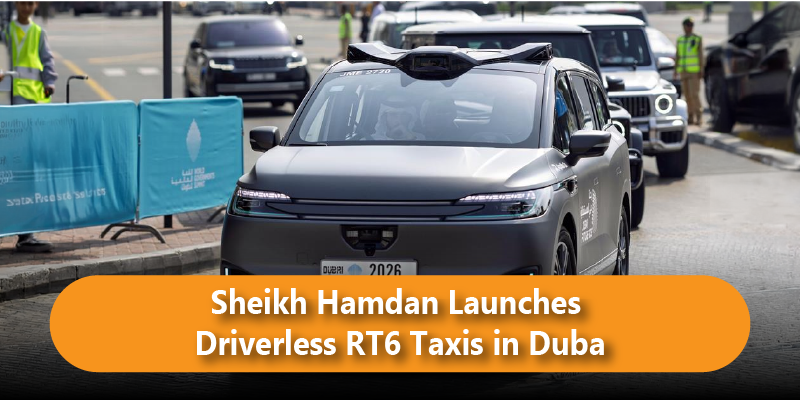The UAE has always been at the forefront of innovation, and driverless cars UAE 2025 are no longer a futuristic dream but an emerging reality. With Dubai announcing autonomous vehicle trials and a full self-driving rollout scheduled for 2026, residents and businesses are preparing for a significant transformation in urban mobility.
The Dubai Roads and Transport Authority (RTA) has already partnered with global technology providers to test self-driving cars on designated routes. This bold move reflects the UAE’s commitment to becoming a global hub for smart transportation. But the question remains—is UAE driverless car readiness where it needs to be?
Let’s explore the latest updates, infrastructure readiness, and what lies ahead for autonomous vehicles on UAE roads.
UAE Driverless Car Rollout – 2025 Update

Dubai is spearheading the transition to autonomous mobility, with trials already underway in select areas. The goal is to launch fully autonomous ride-hailing services by 2026, making Dubai one of the first cities in the world to integrate self-driving cars into daily transport.
Key updates for driverless cars UAE 2025:
- Initial trials are being conducted in Dubai, with safety drivers onboard for monitoring.
- Cruise, a subsidiary of General Motors, is among the technology partners involved.
- Target 2030 vision: Dubai aims for 25% of trips to be autonomous within the next five years.
This push aligns with the UAE’s larger smart mobility strategy, positioning the country as a global pioneer in sustainable and intelligent transport.
UAE Autonomous Vehicle Readiness – Are Roads Prepared?
The readiness of UAE roads is central to ensuring a smooth transition. Multiple initiatives highlight how UAE driverless car readiness is advancing:
- Smart Infrastructure: Dubai has been investing heavily in intelligent traffic systems, AI-based monitoring, and road sensors.
- Digital Mapping: High-resolution 3D mapping of the city is underway to support navigation for self-driving cars.
- Legal Framework: The UAE government has already begun developing policies to regulate autonomous mobility, insurance, and safety standards.
- Public Awareness: Programs are being launched to educate residents about interacting with autonomous cars.
These steps underline how the UAE is not just trialing the technology but building a comprehensive ecosystem for autonomous vehicles.
Comparison with Global Autonomous Vehicle Developments
- United States & Europe: Several cities are testing robo-taxis and delivery bots, but regulatory challenges slow adoption.
- China: Aggressive rollout of autonomous buses and taxis in tech-forward cities like Shenzhen.
- UAE: Among the few countries with a clear roadmap, regulatory support, and a target year (2026) for citywide launch.
In this global context, the driverless cars UAE 2025 initiative positions Dubai as a true frontrunner.
Challenges Ahead for Driverless Cars in the UAE
While progress is rapid, there are challenges to address:
- Safety Concerns – Building public trust will require successful trial runs without major incidents.
- Cybersecurity Risks – Autonomous systems must be safeguarded against hacking or malfunctions.
- Cost Factor – Implementing advanced AI, sensors, and infrastructure requires significant investment.
- Traffic Integration – Balancing driverless cars with traditional vehicles during the transition phase.
Overcoming these hurdles will determine how quickly the UAE achieves full driverless car readiness.
Predictions for Driverless Cars UAE 2025 and Beyond

Analysts expect gradual adoption starting in 2025, with pilot projects expanding into larger-scale rollouts by 2026. By 2030, Dubai envisions a quarter of all trips to be made by autonomous vehicles.
Projected milestones:
- 2025: Controlled trials across major Dubai districts.
- 2026: Launch of autonomous ride-hailing services.
- 2030: 25% of mobility in Dubai to be fully autonomous.
This ambitious roadmap demonstrates the UAE’s confidence in reshaping mobility.
Benefits of Driverless Cars for UAE Residents
- Reduced Road Accidents: AI-driven navigation minimizes human error.
- Lower Transport Costs: Autonomous fleets reduce dependency on private car ownership.
- Eco-Friendly Mobility: Many self-driving cars will be electric, supporting the UAE’s green initiatives.
- Convenience & Accessibility: Elderly and disabled residents will gain new mobility options.
These advantages highlight why driverless cars UAE 2025 is more than just a transport update—it’s a lifestyle change.
FAQs on UAE Driverless Car Readiness
Trials are ongoing in 2025, with a full rollout planned for 2026.
Dubai has partnered with Cruise, a GM subsidiary specializing in self-driving technology.
Yes, advanced AI, road mapping, and regulatory oversight aim to ensure safe adoption.
Most will be electric vehicles, reducing emissions and aligning with UAE’s sustainability goals.
Dubai aims for 25% of trips to be made by autonomous vehicles.
Closing Insights:
The UAE is not just testing self-driving cars—it is building the infrastructure, laws, and public awareness needed for a full-scale rollout. With trials ongoing and a clear roadmap toward 2026, UAE driverless car readiness is well on track.
As Dubai prepares to welcome driverless cars UAE 2025, residents can expect safer, smarter, and more sustainable transport solutions in the years ahead. The journey toward autonomous mobility has already begun, and the UAE is set to become a world leader in this transformative space.
Stay tuned for updates on autonomous mobility and how driverless cars in Dubai will reshape daily commuting by 2026.
Want to keep up with what’s driving the auto world? Miss Auto UAE has you covered.







